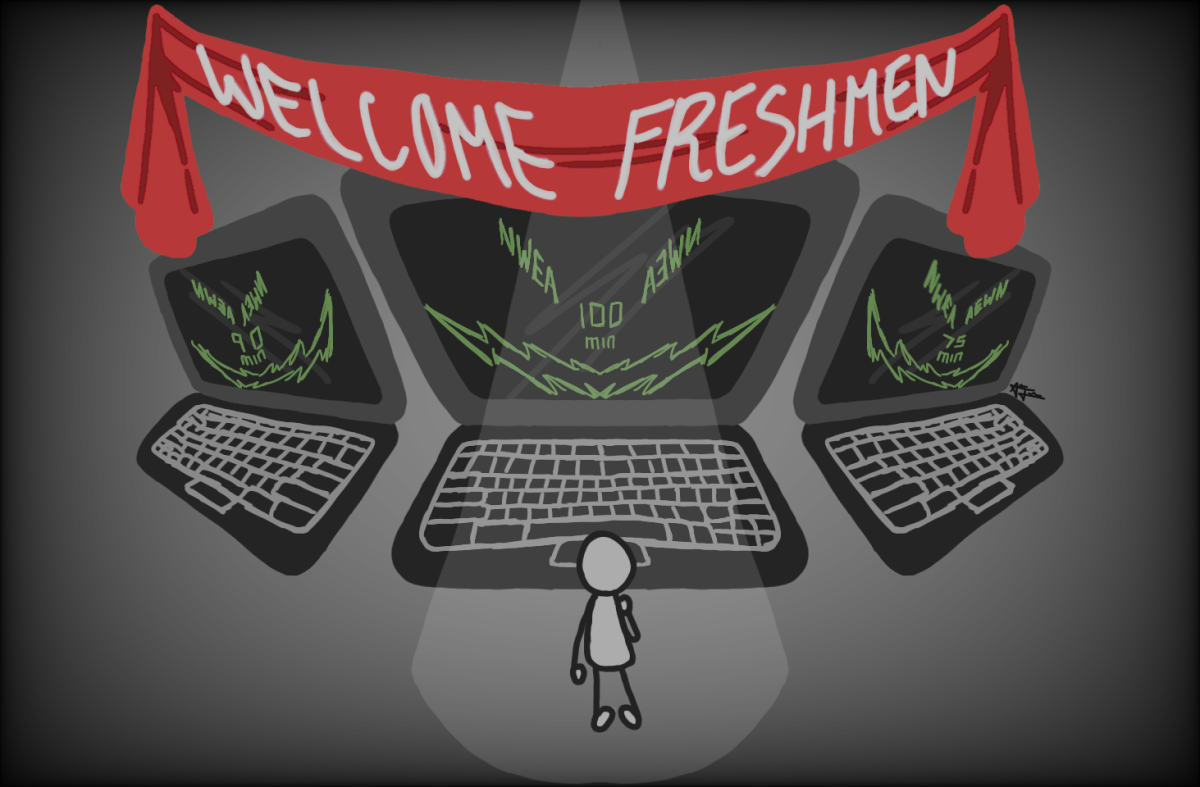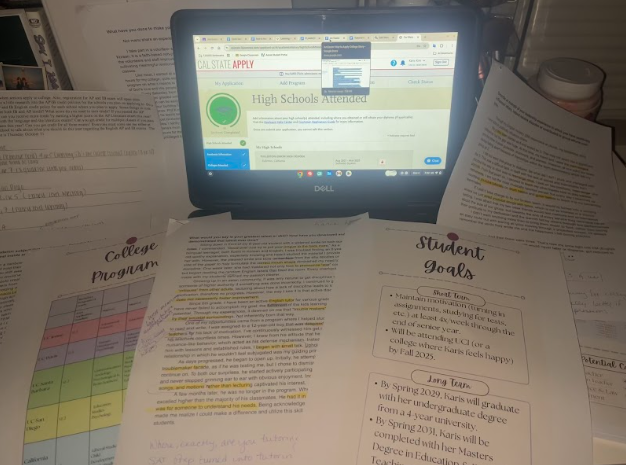To ensure a successful transition for students from middle school to high school, FUHS hosted a three-day Summer Bridge program July 30-Aug. 1. In addition to conducting campus tours, school officials emphasized the importance of mental health, stressing the need for freshmen to find balance and safe spaces.
However, when school started we did not find a balanced safe space. Instead, we were greeted with tons of testing the first two weeks of school. The school district mandated that most students take assessments in math, language arts and science.
The length and difficulty of tests varied. Some students tested for hours; others took 30 minutes with nothing to occupy the time when they finished. This meant that class time that could have been spent on lessons was wasted on stress-inducing MAP Growth tests. MAP stands for Measures of Academic Progress.
We are not dismissing that the results could be useful to our teachers. However, the combined toll on student mental health and the amount of instructional time lost is too overwhelming to have a clear benefit.
Ironically, the Northwest Evaluation Association (NWEA) website has a clean and inviting format, implying that the test is a simple and uplifting experience. It’s not.
“We put people and partnership first,” the website says. “We focus on students.”
The NWEA test creators probably thought they were being helpful and transparent by posting a student’s score at the end of each test, but showing a percentile score with no context makes things worse. There is no summary of the student’s performance and no explanation as to what their score means. “Obviously, there is normal test-taking anxiety,” sophomore Zoe Healy said. “But it is another feeling entirely when it shows you what placement you are in and causes feelings of doubt to set in.”
Science teacher Kristen Cruz said these adaptive tests are new this year. “The idea with these tests is for teachers to compare results, for schools to compare results, and to see how our students are progressing over the years,” she said.
Okay. We understand the goal. These adaptive tests enable teachers to do their jobs by identifying what their students need to learn. Sounds harmless. The students we spoke to, however, said they felt anything but supported. “Testing overall stresses me out,” freshman Leila Montanez said. “I lose some of my confidence, especially the longer the test is.”
Fresh from summer break, we were expected to stay sharp for 7 hours of class. Throwing in a collection of standardized tests made for a painful back-to-school welcome.
For sophomore Elizabeth Sherman, the biggest challenge when testing was having nothing to do in her classes after finishing because teachers had postponed lessons during the week of testing. “I just sat there in my classes if I finished early,” she said.
Because the test did not count for a grade, it’s hard to measure how seriously students approached the assessments. Between students fretting over their academic performance, or being bored out of their minds, it is safe to say that the NWEA adaptive test was a missed opportunity for the district to gauge what students really needed.
The FJUHSD prioritized the NWEA tests over activities that teachers had planned to get us comfortable with the new environment. Thus, teachers had to push their lesson plans behind schedule. This predicament highlights how the district prioritized measuring students’ knowledge before teaching them content.
Biology teacher Jaimee Rojas found that testing reduced time that could have been spent on learning. “I had to take things out from my lesson plan in order to make room [for MAP Growth],” Rojas said. “It takes away a lot of instructional time. It makes me wonder, what are we valuing? The test or student learning?”
We wholeheartedly agree.
Ideally, the district will throw away the tests and come up with a new way to track student progress. But if we’re stuck with the tests, it would be nice to make them last one class period instead of taking two or three days.
If the school values our mental health, those in charge will reconsider how and when students take these assessments. After all, feeling positive about taking a test is just as important as the skills being measured.













